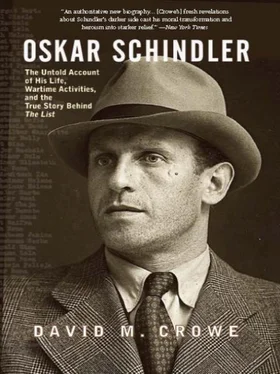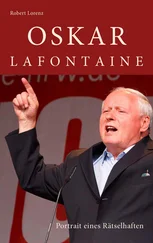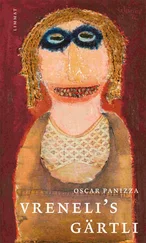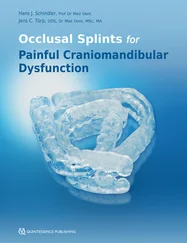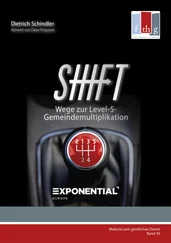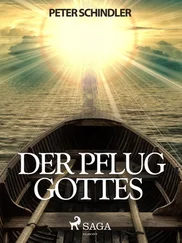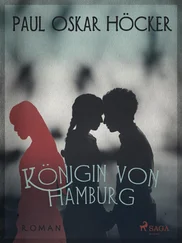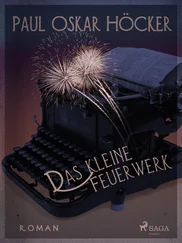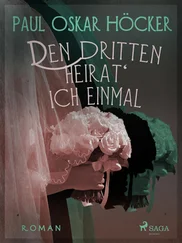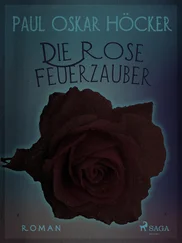Schindler claimed that only Kreuziger met them in the restaurant at 9:00 A.M. and took them to his apartment where the German agent lived with his family. Oskar told his Czechoslovak interrogators that they talked for about an hour. He noted that he had spotted Peter in the kitchen, though he never came out to talk with Schindler and the others. Kreuziger asked Oskar and Leo to stay for lunch, but Oskar declined because he had to meet Gritt Schwarzer. Before he left, he arranged for Kreuziger to have Peter meet him at 3:00 P.M. with a car. He promised Kreuziger that he would return to Zlaté Hory on July 18 or 19 with the materials from Pruscha. Because “Müller” was uncertain about which day he would come to the frontier, Kreuziger said he would have Peter wait there each day between 6:00 P.M. and 8:00 P.M. 104
At this point, the testimonies of Schindler and Pruscha diverge again. Oskar said that after his meeting with Gritt, he met Peter and Leo at the prearranged spot in Ziegenhals, where a car was waiting for them. Leo evidently felt he did not have enough time to get the information that Kreuziger wanted and told Oskar he needed an extra day or so. “Müller” told Peter that he would not come to Zlaté Hory on July 17 or 18 but on July 18 or 19. Pruscha’s account is different. He said that Kreuziger met the two Sudeten Germans in the Deutsches Haus on the morning of July 11. Oskar excused himself at 1:00 P.M. while Leo and Peter went to a street corner near the restaurant. At 1:45 P.M., Schindler returned with a car which drove them to the German border village of Arnoldsdorf (Pruscha said Altmansdorf). “Müller” then called for a car to meet them on the Czechoslovak side of the frontier. Oskar and Peter left Pruscha hidden in a room at a local restaurant. Schindler finally returned and they walked together to a red church in Arnoldsdorf. Suddenly, Peter walked past them and signaled them to walk quickly towards the Czechoslovak border. He gave hand signals when it was safe to cross the border. They crossed at the same spot that Oskar had first learned on July 1 and walked safely to Skřivánkov. About halfway to Zlaté Hory, Peter passed them on a bicycle. They met him in a pub in Zlaté Hory. Pruscha went to the bar and bought a beer and some sausages while Oskar and Peter stood in the hallway talking. After Leo had finished, “Müller” paid his tab and they walked towards the train station along a special route laid out by Peter. They arrived at the station at 5:15 P.M. and caught a train ten minutes later for Mikulovice. 105
In Mikulovice, they changed trains for Jeseník (Fryvaldov in both testimonies). On their arrival, Schindler got off the train and told him to meet him in Zábřeh (Hohenstadt), where he would give Pruscha the coat that he had left in the car in Germany. He said he was getting off in Jeseník because he had customers to visit there. When Leo got into Zábřeh at 10:00 P.M., Oskar was waiting for him. Unknown to Pruscha, Schindler’s private car and driver were waiting for him in Zábřeh. Oskar said that as he was being driven to Zábřeh, he remembered that there were no more late evening connections from there to Brno. Consequently, he met Leo at the train station and offered to take him to Svitavy by private car because otherwise he would have to wait four hours for another train. Before they left, Oskar took Leo to the Zur Eiche (by the Oak Tree) tavern while he “settled a private matter.” Pruscha explained that “Müller” told him to have dinner and wait for him. After fifteen minutes, Oskar returned with the driver and the three of them had dinner together. He paid the bill with a 100 crown ($3.46) note and gave the change of 60 crowns ($2.14) to Leo. As they were driving to Svitavy, Leo and Oskar agreed to meet in Brno at 9:30 P.M. on July 16 at the Europa Café. If for some reason one of them was not there, they would meet the next evening at 10:00 P.M. in the Grimm restaurant on the Vaclavska in Brno. Pruscha promised that he would try to have the graphicons. When they reached Svitavy, Oskar took Leo to the Unger Hotel to wait for his train to Brno. Oskar left Pruscha at the hotel and went home. 106
Schindler stopped at this point in his interrogation statement and explained that he wanted to add another remark by Pruscha to his testimony. Oskar said that Pruscha told him that he had a good German friend in Brno, Vaclav Ryba, who was a “military master builder.” Leo added that he regularly played cards with Ryba. According to Schindler, Pruscha would try to “attract him to our thing,” but that they would have to deal with Ryba very carefully because he was “known to be very correct and dutiful.” Ryba constructed barracks in Slovakia but returned home on weekends. His financial situation was “stable.” Pruscha felt it best that he talk to Ryba alone. If he seemed interested, Oskar could meet with him. Regardless of Ryba’s interest, Leo promised to introduce him to “Müller.” 107
Pruscha spent the last two days of his vacation at home and returned to work on Thursday, July 14. The following day, July 15, he went to the pub U Hradeckü on Rasinova street, where he met Ryba, who was having a drink in the beer garden with an architect, Nemecek. Pruscha was surprised to see Ryba, who usually came to Brno only on weekends. The Czechoslovak army officer explained that he came home early because “he had to arrange things in Brno.” After Nemecek left, Leo spoke to Ryba in German and asked him how he would react should he be asked to do something for his “German culture and way of life.” Ryba immediately understood the intent of Pruscha’s question. He asked “my dear Leo” whether he had forgotten that Ryba was a soldier. If a civilian was caught doing such things, Ryba sharply added, he might get a year. A soldier would get “a bullet.” Pruscha said that after these comments he decided not to try to “win Ryba over for espionage anymore because [he] was discouraged by his words.” Ryba left the pub to go to lunch and Leo stayed behind and ate his packed lunch. Afterwards, he returned to work. 108
The next day, Pruscha went to Department V of the directorate of the Czechoslovak National Railways to find Ladislav Novak. He also approached another employee, Pokorny, who worked in the lithographic department. Pokorny told Leo that he did not have any spare graphicons to give him. At noon, he went to the outer office where Novak worked and asked that he meet him in the corridor. Pruscha explained that he had scratched some graphicons he had been preparing for his boss. When he tried to repair them with glue, he irreparably damaged them. His boss was quite angry, and Leo hoped he could get some new ones to give his supervisor when he returned from vacation “to put the whole thing right.” Novak told Pruscha that he would give him new ones only if Leo gave him the damaged graphicons. Novak was in charge of the drawing and production of graphicons in his department. Since 1936, railway authorities had treated them as confidential and kept them under lock and key because of their strategic military value. Graphicons with military margins had to be put in a special case. Anyone who wanted a graphicon, such as a station master, had to sign a written release form to obtain it. At the end of each year, all graphicons had to be returned to Novak’s department, where the old ones were burned. Pruscha knew this but begged Novak to give him some new ones immediately so that he could finish working on them over the weekend. Novak gave him the only two he had for the routes from Brno to Hrušovany nad Jevišovkou and Břeclav-Brno-Česká Třebová. They were missing the military margins, or “tear off slips.” Novak reiterated that he would give Leo replacements if he would bring in the damaged graphicons. He added that he doubted that Pruscha had ruined them all. Instead, Ladislav suspected, Leo had lost them. Pruscha thanked Novak for the graphicons and promised to buy him a beer in return, though Novak declined. Pruscha took the graphicons back to his railway office. Leo also got a copy of a 1930 graphicon, which he later gave to “Müller.” 109
Читать дальше
